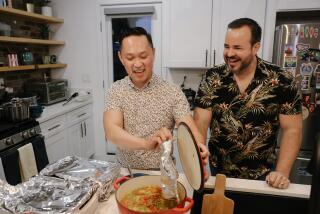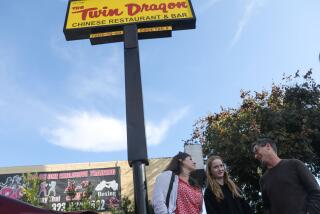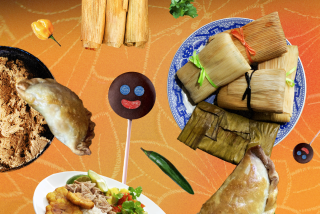Cuba’s Politburo Sends a Gift: Christmas
- Share via
HAVANA — It was beginning to look a little like Christmas at the Cuban government’s Caracol shop in the Havana Libre Hotel on Tuesday.
The biggest tree on hand--a plastic, 24-inch Chinese import--was selling well at $12.90. There was a run on the ornaments, even at $6.60 a half-dozen. And just one string of $4 miniature lights remained on the shelf in the Christmas shop.
This in a government-owned store in a cash-strapped nation where most people thought that the public display of a Christmas tree was taboo until a year ago.
The morning paper helped explain: Christmas is now back to stay--an official, permanent national holiday in Cuba for the first time since 1969.
In a decision that filled the entire front page of Granma--the Communist Party’s official organ, Cuba’s only daily newspaper--the Politburo announced Tuesday that the need to suspend the religious holiday had passed.
“Beginning this year,” it stated, “every Dec. 25 from now on is considered a holiday for Christians and non-Christians, believers and nonbelievers.”
Cuba’s Roman Catholic Church responded swiftly, expressing gratitude and hope that the party’s decision, although “highly appreciated,” was just one of several “new causes for joy” to come on “the road of opening Cuba to the world.”
Pope John Paul II had called for such an opening--and for the world to open to Cuba--during his visit here in January. And, in a gesture to the church in advance of that visit, Cuban President Fidel Castro had declared last year’s Christmas an official holiday.
But the Politburo decision, which almost certainly will be approved by Castro’s Council of State, formally institutionalized Christmas for the first time since the government suspended it 29 years ago last month.
The statement Tuesday by Cuba’s Catholic Bishops Conference called the government’s decision a response to appeals from the pope and the Cuban church. The party, however, noted in its lengthy declaration that the restoration of Christmas’ status was the result of neither external nor internal pressure.
It asserted that the Marxist leadership’s decision to cancel Christmas during the nation’s 1969 sugar harvest was one born of economic necessity--and not a case of religious persecution.
“The suspension of the holiday characteristics of Dec. 25, as everyone in our country knows and can be proved in historic documents of the revolution, was not inspired by any anti-religious sentiment,” the Politburo declared.
Rather, the statement said, it dated to the 1969 harvest, “when the country managed a colossal effort to increase sugar production by 10 million tons.”
“There no longer exists the urgent need to mobilize hundreds of thousands of workers to hand cut the cane of the harvest,” the declaration added. “Combines and machines do the large part of the reaping.”
The party did acknowledge “discrimination” against religious believers and institutions in the past; practitioners were barred from the party’s ranks and denied important state jobs. Holiday trappings such as Christmas trees were discouraged.
But the party has abandoned those policies in a gradual process of religious opening that included the pontiff’s visit. And Tuesday, within hours of the Politburo’s announcement, even some of Havana’s state-owned hotels had put Christmas trees in their lobbies.
Both the Communist Party and the Catholic Church acknowledged that many Cubans have continued to observe a traditional Cuban Christmas through the years, gathering with family and exchanging small gifts. And most Cubans interviewed here--Christians and Communists alike--said they welcomed Tuesday’s announcement as a reflection of popular sentiment.
“There is much more enthusiasm about Christmas among the Cubans this year--much, much more than ever before,” said Alina Gonzalez, the sales clerk at the Caracol Christmas shop, which she said has catered to tourists but very few Cuban customers in years past.
Gonzalez said she did not attribute the renewed interest either to the pope’s visit or a religious awakening in a nation where baptisms and other religious rites are, in fact, on the rise.
“I’m not sure why,” she said. “But I think it’s more the tradition of family, gathering with relatives and sharing.”
But in Cuba, which has endured a punishing U.S. economic embargo and the loss of billions of dollars in foreign aid since the collapse of the Soviet Union, it was clear that the newly enshrined Christmas holiday will have few of the overt capitalist trappings of Cuba’s neighbor to the north.
There are no Santas, no candy canes, no snowmen on Havana’s broad, tree-lined boulevards, which are adorned with the more traditional billboard slogans of the Cuban revolution. There are no long lines at the city’s dollar-only stores. And despite the brisk sales to Cubans with dollars at the Caracol Christmas shop Tuesday, most appeared to have come to look--not to buy.
More to Read
Sign up for Essential California
The most important California stories and recommendations in your inbox every morning.
You may occasionally receive promotional content from the Los Angeles Times.










